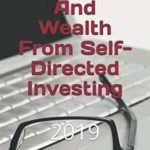Special to the Financial Independence Hub
The most productive new business salesman I ever employed is now a “Vice President” with the investment division of one of Canada’s largest banks. His special skill was in belittling prospects who did not see the benefit of his sales pitch.
Frequently, I got told by his new sales that they would buy but they never wanted to see him again. Not understanding the role of investment advisors employed by a bank, I was surprised when I learned that this strong “closer” could have risen to the “executive” ranks.
With a better understanding of bank investment advisors, I now understand why he has been successful. I learned that the title of Vice President is often given to financial advisors who are great closers. It impresses the naïve. The illusion of trust and knowledge is further enhanced with several impressive designations on their business cards.
Much to my surprise, I learned that investment advisors are hired off the street the same as any sales representative is hired. If they can show they are successful closers, they are well along the way to being hired. With little internal training, they are then set loose on a public full of meek sheep who know even less about investing than this newly hired investment “expert.”
Banks already know if you’re a prime prospect
It is almost impossible to function in our society without being a bank customer. The bank does not have to guess at your net worth and whether you are a prime prospect for their full-service investment advisors. They know.
You will be contacted by phone or during a visit to your bank branch with a seductive pitch that goes like this, “Surely you would appreciate some free advice on how best to manage that great sum of money you have on deposit. It is earning next to nothing. Don’t you want to be rich? Let us make your money work for you. Our fees are so small you won’t even notice them. When can we set up an appointment for you with our vice president? Here is his very impressive business card.”
Since you have large sums just sitting in accounts, you are broadcasting that you know little about investing and are a pigeon waiting to be plucked. If you do go into a meeting with one of these sharks, they will relentlessly pursue you to sign a full-service investment agreement. Since they do this daily, there is not one objection that you can raise that they have not been trained to answer with the objective of getting your signature.
They’re not your friends
Investment advisors are not your friends. They are not working in your best interest. Their job is to get control of your money and to invest it in the best interest of the bank. They will do their best to sell you on mutual funds because the bank can make more money from them than other investments, especially those mutual funds controlled by that bank.
Once you become a full-service client, you will receive just enough attention that you do not abandon them. They are busy. They expect to lose at least 20% of their clients each year. This requires chasing hundreds of other pigeons to replace them. Whether your portfolio increases of decreases in value the bank will make money. Your investment advisor is prepared to handle any questions about your investment losses.
How to protect money? Stay as far away from full-service investment advisors as you can. Learn how easy, inexpensive and safe it is to self-direct your own investing.
 After graduating from McMaster University, with $100 left in his pocket (but no student debt), Ian Duncan MacDonald hitch hiked home to Sudbury to work four months as a labourer in International Nickel’s smelter. In four months, he had saved enough to seek his fortune in the big city.
After graduating from McMaster University, with $100 left in his pocket (but no student debt), Ian Duncan MacDonald hitch hiked home to Sudbury to work four months as a labourer in International Nickel’s smelter. In four months, he had saved enough to seek his fortune in the big city.
In Toronto, he was immediately hired by Dun & Bradstreet as a credit reporter. While he had expected to be a reporter for the rest of his life, D&B had other plans. Within four years, he was General Manager of their Marketing Services Division. Three years later, at the age of 28, he was responsible for the sales, marketing and advertising for all three divisions of the company.
 At 32, he left D&B to build Screening Systems International Ltd, for a large conglomerate, which led to his interest in collections. Moving to Creditel of Canada Ltd. he became Senior Vice President. Subsequently bought by Equifax, he remained there until his retirement in 2005. In anticipation of his retirement he incorporated Informus
At 32, he left D&B to build Screening Systems International Ltd, for a large conglomerate, which led to his interest in collections. Moving to Creditel of Canada Ltd. he became Senior Vice President. Subsequently bought by Equifax, he remained there until his retirement in 2005. In anticipation of his retirement he incorporated Informus
Inc. to sell his art, his publications and consulting services (www.informus.ca.)
His book “Income and Wealth from Self-Directed Investing” provides a detailed system, plus stock scoring software, which arms someone who has never invested with the knowledge they need to successfully and safely generate income and wealth for the rest of their lives.


